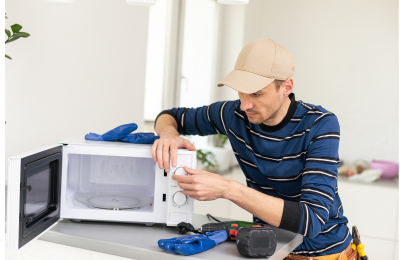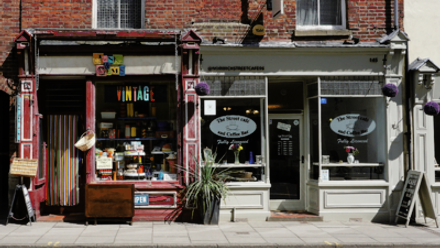Keeping it local
5 min read
As we continue our theme of creating a sustainable future, how can we take what we are doing as individuals into our communities? How can we reduce our consumption and carbon footprint? How can we connect with and inspire others?
One answer is to live as locally as possible and in today’s blog APDO member Susie Smart shares her experience and discoveries of going local in Hampshire.
The more we can do and buy locally the less damaging impact there will be on the planet and, depending on our postcode, we should be able to find good quality products almost on our doorstep.

Here in Southampton, I can find local cheeses, beers, honey, quirky cakes and sourdough bread all within a mile of home. And slightly further afield, I can use the New Forest Local Produce Guide to seek out food, drinks and crafts as well as retailers and hospitality venues who use local produce. A quick internet search will find similar directories across the regions.
Even if we are making major purchases for our homes, there are bound to be local options as alternatives to the online giants and major department stores. A local independent retailer, whether for furniture or electronics, may well offer great advice before we make our purchases, and continue with that priceless commodity afterwards - ongoing customer care.
To keep things even more local and sustainable, we can buy second-hand from charity shops, junk shops, nearby up-cyclers and sellers on the big internet sites who advertise ‘local collection only’.
Online spaces
Maybe we don’t even need to spend money. Increasingly, local communities are creating Facebook groups and other online spaces to enable people to pass on what they no longer need - from outgrown kids’ clothes and toys to furniture and food. You may like to look into the Olio app, Freecycle, Gumtree, I Need a Whisk or NextDoor, or do an online search for free items in your area.

The laudable goal to reduce food waste and to share resources has seen a rise in food-sharing apps, food banks, pop-up cafés using surplus supermarket stock, and other local initiatives such as seed and plant swaps. Whilst some of these require a referral to use, many are open to all. If we are fortunate enough to live in abundance, can we share what we have with others? If we need to preserve our budget, can we get to know the places where we can be gifted what we need?
My local freebie Facebook group goes beyond ‘offers’ of items and encourages members to make one-off requests and also to identify things they need on an ongoing basis. I now have a range of outlets for unwanted inventory from my own house and that of my home organising clients, including:
*books (to a local school and to a station book-swap shelf),
*fabrics (to several up-cyclers),
*packaging (for a craftsperson mailing their goods),
*unopened toiletries (to a Women’s Shelter), and
*calendars (to a lady who makes picture books for hospital patients with dementia)
What a great way to create a tiny circular economy, and how satisfying to reduce what may otherwise go to landfill!
Repair Cafés
There are many other projects to keep items functional. Local Repair Cafés are increasing in number across the country and are brilliant for restoring tired and broken objects, and for sharing knowledge. Bring a defunct appliance to the monthly event and watch it being brought back to life. Depending on the volunteers available you might go home with a working lawnmower, a restored iPad or a mended item of clothing - and the knowledge that very little needs to be thrown away. There is very likely a way to get something usable again.

With this comes the sharing of skills. In the Repair Cafés the volunteers are keen to share how they mend things, to inspire us to try for ourselves in future. Whilst YouTube can offer some great tutorials, there is nothing as enriching as sitting by an expert whilst they guide us through how to fix a broken zip or replace a bike wheel.
If you are inspired to learn a practical skill in more depth, look locally. For instance, there may be small businesses offering sewing lessons or a college hosting courses in DIY.
Men’s Shed
Another great resource is the Men’s Shed movement, set up originally for men but now often open to women members. These groups encourage people to “come together to build, fix and restore - projects as well as themselves!” Their mission is to create welcoming spaces to enable conversation and the practice of skills including woodwork, metalwork and electronics. Members can undertake personal projects or be involved in making things for the local community or charities.
Is there a skill you would like to learn, or do you have a skill you could share with others? Men’s Sheds or the Repair Cafés could be perfect for you.
Tool sharing
Tool-sharing is also becoming popular. Far too often we buy something to use just once then let it languish in a cupboard. Local Facebooks groups can be a handy way to ask if someone has a wallpaper stripper or carpet cleaner they would be prepared to loan out. Some forward-thinking towns have actual Tool Libraries with all manner of gadgets to borrow.
Leisure Time
Finally, living life locally can also include how we spend our leisure time. Do we really need to get in the car to find somewhere to exercise, socialise or sightsee? Is there a local alternative?

Near me, there is a swimming pool and a gym but there is also a river with kayak hire and a footpath all the way up to Winchester. There are some lovely cafés and pubs, and enough nearby places of historical interest to give me options all year round. In Spring and Summer I can take advantage of the Open Gardens scheme and every August I can indulge my passion for art and support local artists in Hampshire Open Studios Week.
By living more locally we open our eyes to more possibilities than we may ever have been aware of, we lessen our damaging carbon footprint and we can once more create communities that sustain ourselves and our future.
What comes to mind when you think about living more locally? Have any of these ideas inspired you? Are there more I have missed? Let’s keep the conversation going on our social media channels at Facebook, Instagram and Linked In.
Susie Smart started her business Smart Organising in 2021 after a long career in education, most notably as a specialist teacher and assessor for students with Specific Learning Difficulties, including Dyslexia, Dyspraxia, ADHD, ASD and Executive Function Difficulties. She now uses her experience and skills to enable people to get past feelings of overwhelm in their homes, whether caused by years of their own accumulation or by the sudden arrival of someone else’s stuff. She works alongside clients to sort and edit their possessions in order to create homes they love and she can help devise systems to keep them that way. She will always try to find sustainable destinations for discarded items. Susie works mainly in South Hampshire but offers virtual support across the UK.






